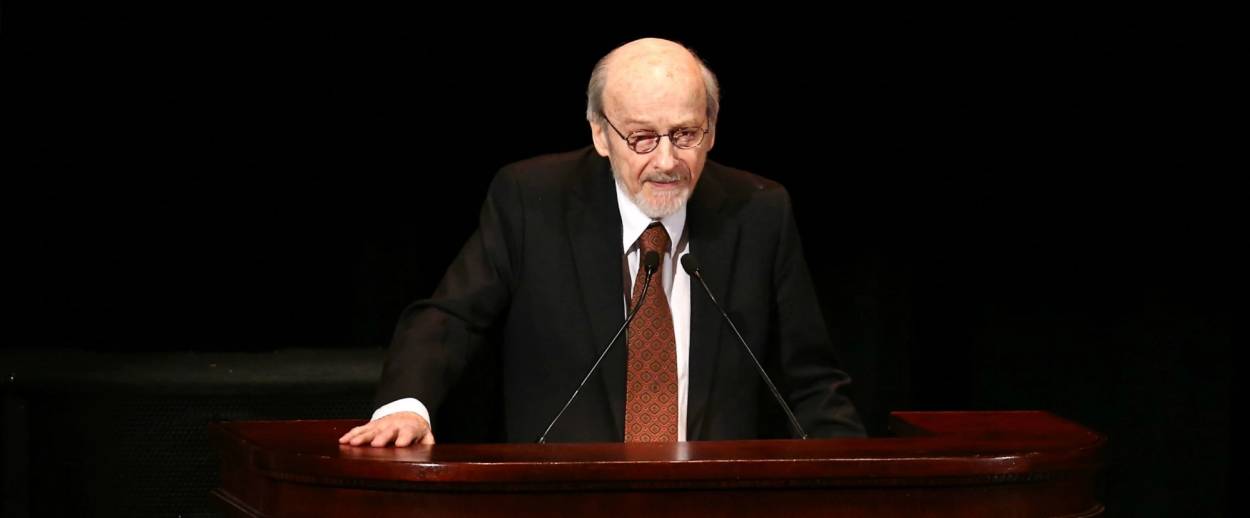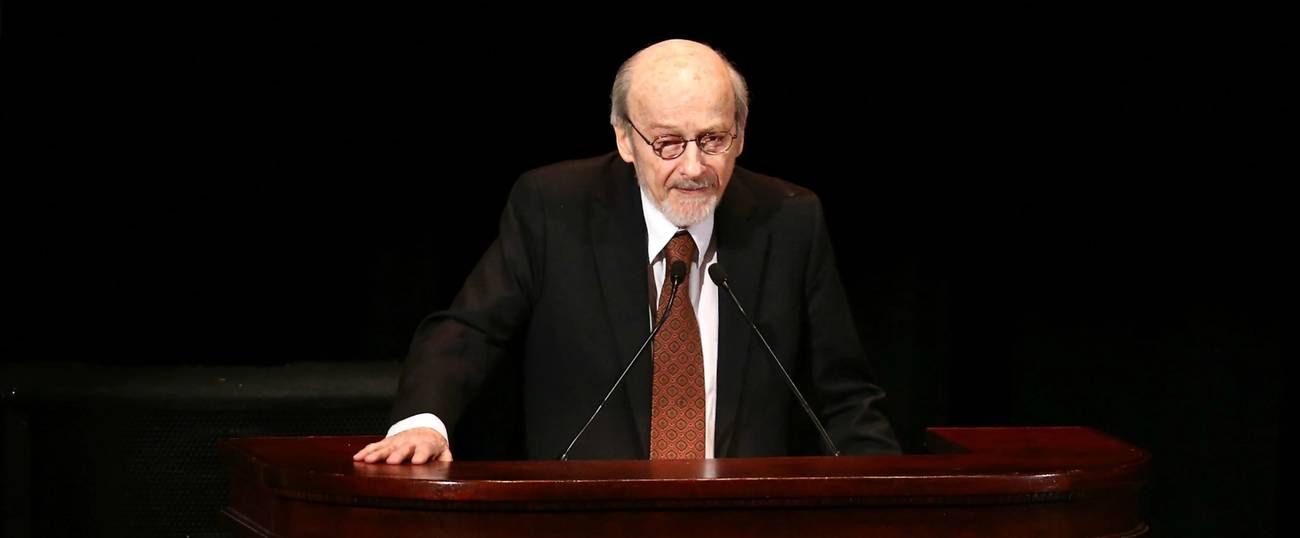Reading ‘Ragtime’ Taught Me How To Be a Real New Yorker
The words of E.L. Doctorow, who passed away on Tuesday at the age of 84, got me through tough times when I was a lonely college student at NYU




Right on the heels of Theodore Bikel, it’s already time to mourn the passing of an all-time Jewish Great: celebrated man of letters E.L. Doctorow, who died Tuesday in Manhattan at the age of 84. A prolific author, essayist, teacher, and political commentator, Doctorow was an indispensable cultural voice for nearly five decades, although he will almost certainly—and arguably be correctly known—for his sprawling, breathtakingly accomplished and meticulously researched novels, including Billy Bathgate, The March, and his most famous work of fiction, Ragtime. But I’ll always remember him for something else: E.L. Doctorow taught me how to be a New Yorker.
When I was an incoming freshman at NYU, I received an official-looking letter in my summer welcome packet that informed me of the things I would need before my arrival: extra-long twin sheets, an unlimited Metrocard, and most crucially, a copy of Ragtime, which was required reading for every member of my graduating class. We were expected to have finished it by the first day of school, and be primed for its discussion in any number of seemingly unrelated subjects. Being as it was “required,” and given that I have a complicated relationship with anything “required” of me by an authority figure, and even by the administration of a university I had desperately wished to attend, I didn’t bother. Instead, I faked my way through class discussions too numerous to count, and talkbacks of at least three separate performances of the book’s musical adaptation, which was playing on Broadway at the time and featured a young Audra McDonald in the performance that truly made her a star. In fact, I didn’t get around to actually reading the book until halfway through my sophomore year, when I was living in a bleak tenement apartment in an as-yet ungentrified area of Brooklyn and wondering what the hell I was doing with my life.
Instantly, the world made sense once I had finished the book. And instantly, I hated myself (more than I already did) for neglecting Ragtime for so long. New York, the city I had longed to live in my entire life, had been an almost insurmountable challenge for me. It was noisy, hot, expensive, crowded. I had few friends. I was lonely. I felt invisible. But in reading Ragtime, I realized for the first time that it wasn’t me—it was New York! That was what living in the City was all about.
People had felt hot and exhausted and broke and lonely there for a hundred years, just as they would a hundred years in the future. Suddenly, every layer of cracked paint and every mound of impenetrable dirt in the cracked floorboards of my uncleanable apartment were imbued with the weight of history. And the world of Ragtime came alive. I was walking the same streets as Tateh and the Little Girl. I was watching a bum pee against the same marble stoop that Evelyn Nesbitt had once leaned against. I felt like I had a place in the rich pageant of New York’s storied history—the Unhappy Girl on a park bench, a clear type that could one day be immortalized in a similar fictionalized portrait of the city in which I now lived—and therefore, in New York itself. My anonymity was part of a tradition. I was a real New Yorker after all.
If E.L. Doctorow had one great gift among his many exceptional ones, it was this: the ability to bring meaning to the present through the mirror of the past. I can think of no higher praise for a writer. His memory will live as long as his own was.
Rachel Shukert is the author of the memoirs Have You No Shame? and Everything Is Going To Be Great,and the novel Starstruck. She is the creator of the Netflix show The Baby-Sitters Club, and a writer on such series as GLOW and Supergirl. Her Twitter feed is @rachelshukert.